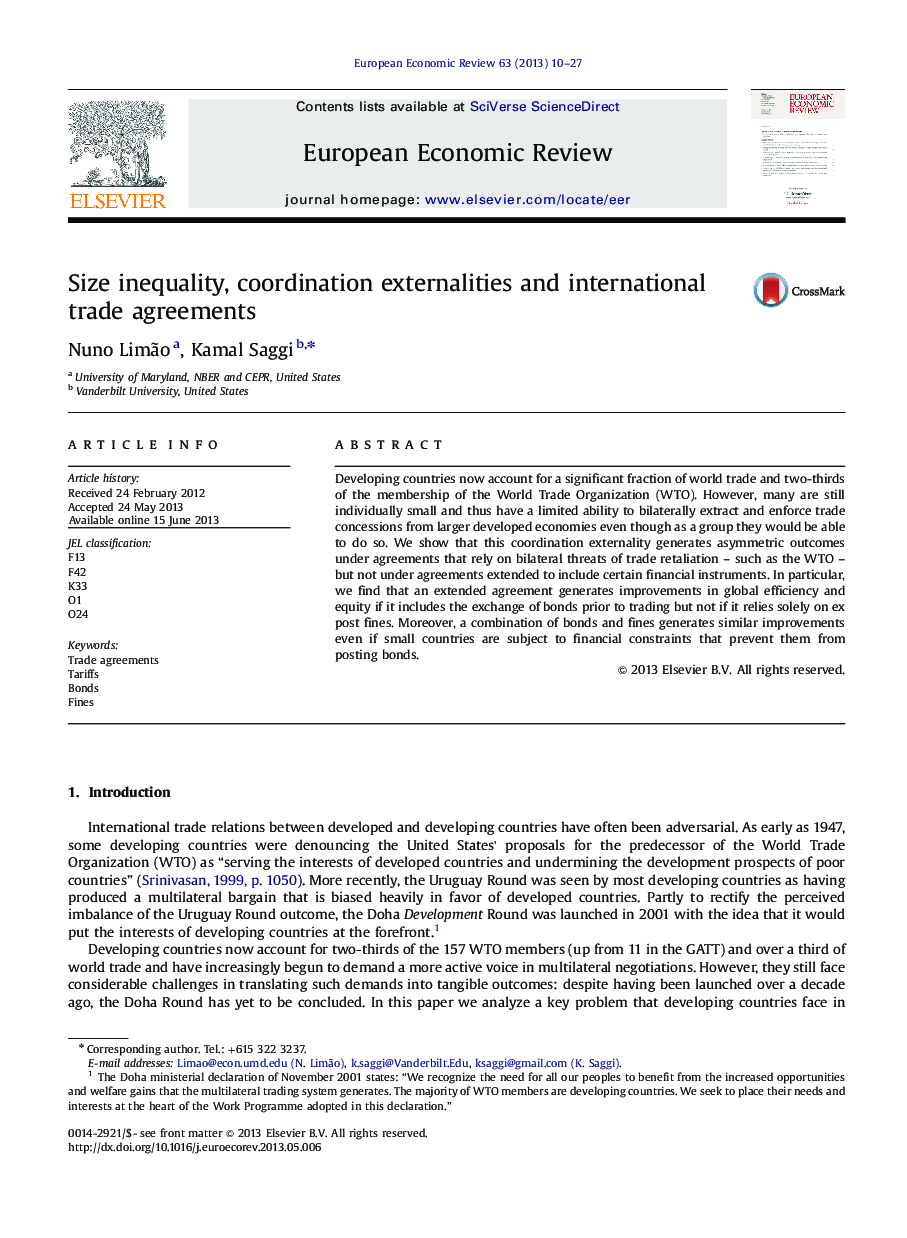| کد مقاله | کد نشریه | سال انتشار | مقاله انگلیسی | نسخه تمام متن |
|---|---|---|---|---|
| 5066876 | 1476805 | 2013 | 18 صفحه PDF | دانلود رایگان |
- Developing countries typically have limited market power in trade.
- A coordination externality exists when such countries import common goods.
- Trade agreements based solely on tariff retaliation generate asymmetric outcomes.
- The exchange of bonds prior to trading improves efficiency and equity.
- The combined use of bonds and fines generates similar improvements.
Developing countries now account for a significant fraction of world trade and two-thirds of the membership of the World Trade Organization (WTO). However, many are still individually small and thus have a limited ability to bilaterally extract and enforce trade concessions from larger developed economies even though as a group they would be able to do so. We show that this coordination externality generates asymmetric outcomes under agreements that rely on bilateral threats of trade retaliation - such as the WTO - but not under agreements extended to include certain financial instruments. In particular, we find that an extended agreement generates improvements in global efficiency and equity if it includes the exchange of bonds prior to trading but not if it relies solely on ex post fines. Moreover, a combination of bonds and fines generates similar improvements even if small countries are subject to financial constraints that prevent them from posting bonds.
Journal: European Economic Review - Volume 63, October 2013, Pages 10-27
